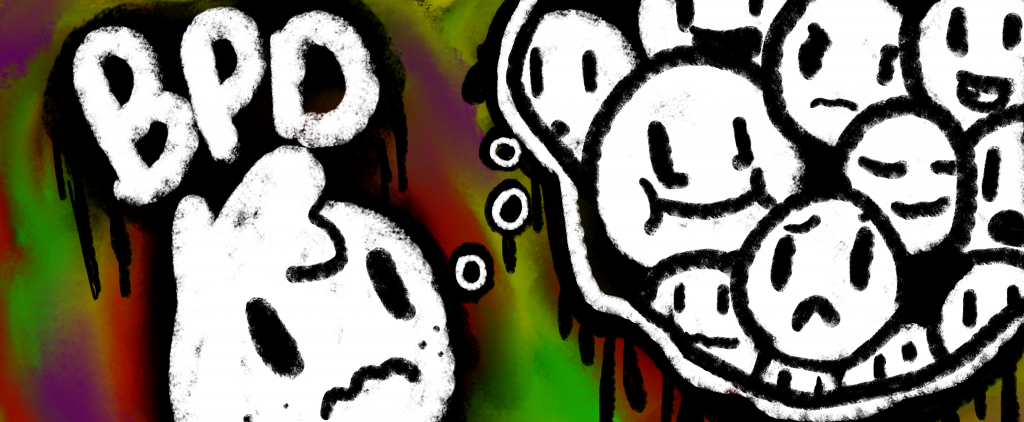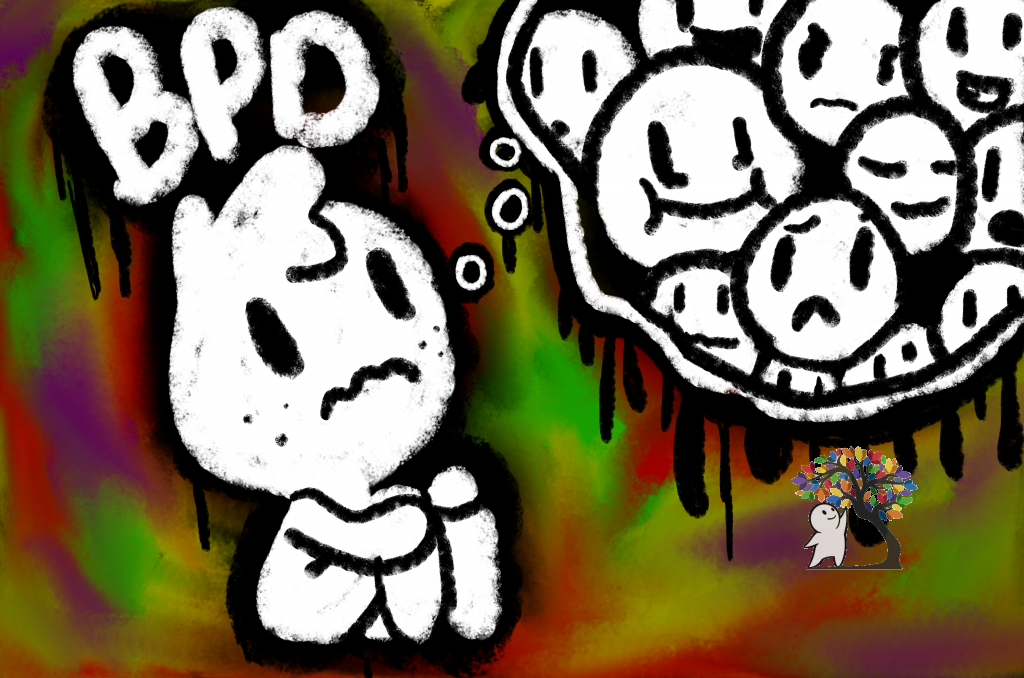7 Ways Borderline Personality Disorder Affects Relationships (BPD)

Hi there Psych2Goers, this is a disclaimer that this article is for informative purposes only. It is not intended to treat or diagnose any condition, and is not intended to stigmatize people with any condition. If you’re struggling, please reach out to a mental health professional.
Borderline Personality Disorder (BPD) and relationships are complicated. Typically, they’re noted for being rocky, stormy, and all around confusing. So much so, that some people are strictly against BPD people being in relationships at all. However, BPD is a complex condition and people with it are often great people, but are faced with serious struggles. Fortunately, as we discover more about the condition, and with the developing support systems for it, people with BPD are finding better successes with relationship health than ever before. To better explore some of the struggles that people with BPD and their partners face, in this article, we’ll be looking at seven ways BPD affects relationships.

BPD is a personality disorder concerned with distortions between self-perception and relationships with others. Links to further articles about BPD will be listed at the bottom.
1. Intense Caring and Admiration
People with BPD often put their partners on a pedestal in the beginning of a relationship. They generally feel emotions much stronger and put a lot of work into their relationship. Clinginess is especially common as the person wishes to spend genuine quality time with their partner. While these may sound like desirable traits, they do come with their challenges. Often as a relationship matures and the “honeymoon phase” dissipates, the complications begin to emerge. The caring and admiration can switch at a moment’s notice to something opposite and happen in cycles which is exhausting to the non-bpd partner (Salters 2020).

2. Fear of Abandonment
Those with BPD often have an intense fear of being abandoned. They tend to latch onto their partners and are dependent on them for emotional support. However, they are always cautious about their partners leaving them, and as such, they’re hypersensitive to any sign of abandonment. If they experience anything that is a red flag, you may notice a dramatic shift in their behavior. It doesn’t matter if the supposed sign is even true or not and the reaction can be dramatic given the situation. They might completely break off a relationship themselves prematurely out of fear that their partner will do the same to them (Lancer 2019).

3. Fear of Too Much Intimacy
Trust issues often follow people with BPD. Typically, a person with the condition is dependent on others and desires a close relationship. However, they have often have difficulties with intimacy. They can feel overwhelmed by their partner’s affection and try to distance themselves, while at the same time they desire a close bond. Their relationships tend to be highly unstable and unpredictable because of this delicate balance. They may also have intense reactions to a break-up that leads to severe emotional turmoil and can, in some cases, turn into a suicide attempt. When it comes to sex, it is common for a BPD person to have reservations and sensitivities in this regard. This may result from a variety of reasons ranging from prior sexual abuse, to other more personal reasons (Salters 2020).

4. Sudden Withdrawal
People with BPD typically experience black and white thinking known as splitting; they can go from excessive admiration of a person, to complete hatred and distrust quickly. This can include family and close friends. If they experience something that they feel is an act against them, they can completely withdraw and isolate themselves from others. They can go silent, become verbally aggressive, or act out in other ways to push people away from them. Because they have unstable moods, this withdrawal period may last an indeterminate time and can appear to blow over with things going back to normal. However, the people who experience this may have no idea why it happens (McMillan 2019).

5. Impulsive Behaviors
People with BPD usually have highly unstable moods which can result in impulsive behaviors. These behaviors can range from anything to substance use or spending, to darker ones such as self-harm and cutting off relationships (Lancer 2019). These issues can be especially hard on their partners as it is often difficult to confront the person with BPD about their issues. On the other side of things, people with BPD can be overwhelmed with positive emotions and impulsively jump into life-changing events. A popular example of this is that people with BPD tend to quickly jump into marriage. In other scenarios, they imagine a bright future with someone they just met (Phillips 2018).

6. Need For Approval
People with BPD tend to struggle with their own self-image, often just as much as they do with how they view other people. They can become overwhelmed with self-loathing and need to seek validation from others. They often have an intense fear of rejection which they’re hypersensitive to. Small gestures, that the people making them might not think anything about, can greatly disturb a person with BPD and make them feel rejected. Showing up late, changing plans, or doing things without them can be hurtful to the person with BPD. Similarly, they may also hyperfocus on the way people speak to them and interact, and oftentimes misinterpret their motives as negative. This constant need for approval and sensitivity to rejection creates an immense amount of stress on both parties (Lancer 2019).

7. Mood
BPD often causes unstable moods. People with the condition tend to feel emotions stronger than others and interpret them differently. While they can feel positive emotions strongly at times, they can also feel intense bouts of depression and anxiety. These moods are often unpredictable and can change extremely quickly. BPD and Bipolar are often compared, however are quite different. While they do have similarities, there are distinct differences: whereas bipolar is primarily a mood disorder, BPD affects a person’s personality (Holland 2019).

BPD is a difficult condition to live with, and to be in a relationship with. Unfortunately, it has been stigmatized to the point where some people believe that BPD people should never be in relationships, or that their relationships can never be healthy or successful. While it is true that BPD offers a unique set of challenges that may never go away, that is not to say that ALL relationships with them are negative. Having education about the condition and willingness for both parties to work on their issues, and sometimes help from a mental health professional, often leads to success. What are your thoughts on the issue? Let us know in the comments!
References:
- Holland, K. (2019, June 13). What You Need to Know About Borderline Personality Disorder and Relationships. Retrieved from www.healthline.com/health/mental-health/borderline-personality-disorder-relationships#partners
- Kristalyn Salters-Pedneault, P. (2020, May 26). Is an Intimate Relationship Possible With Someone With BPD? Retrieved from www.verywellmind.com/understanding-romantic-bpd-relationships-425217
- Lancer, D. (2019, September 05). The Drama of Loving a Borderline. Retrieved from www.psychologytoday.com/us/blog/toxic-relationships/201909/the-drama-loving-borderline
- MacMillan, A. (2019, June 06). How Borderline Personality Disorder Affects Relationships. Retrieved from www.health.com/condition/borderline-personality-disorder/borderline-personality-disorder-relationships
- Phillips, L. (2018, November 6). The Challenge of Borderline Personality Disorder in a Relationship. Retrieved from www.psychologytoday.com/us/articles/201811/the-challenge-borderline-personality-disorder-in-relationship
Like this article? Here are a few others you may enjoy:
10 Facts About Borderline Personality Disorder (BPD) You Need to Know



Thank you for the article !:)